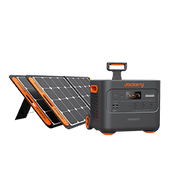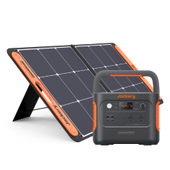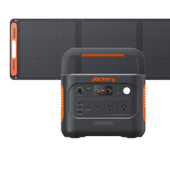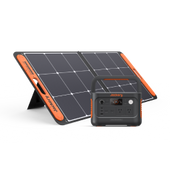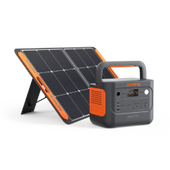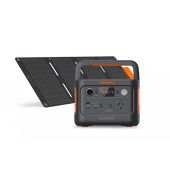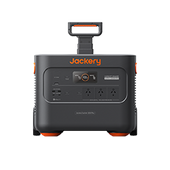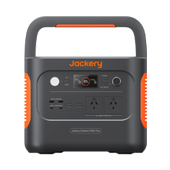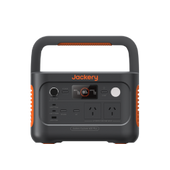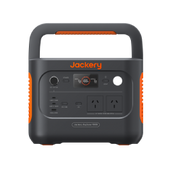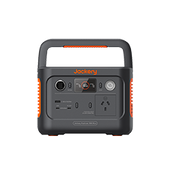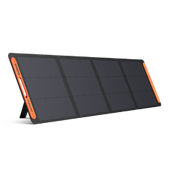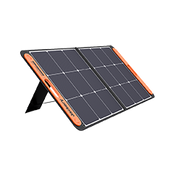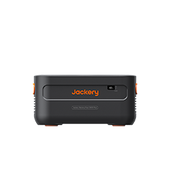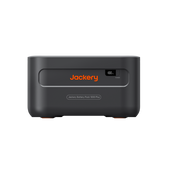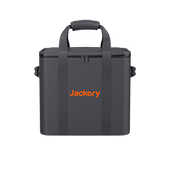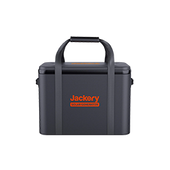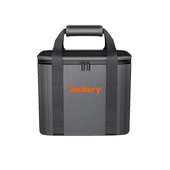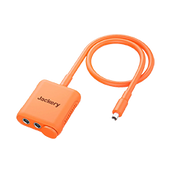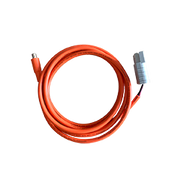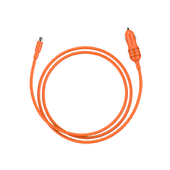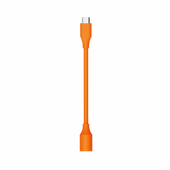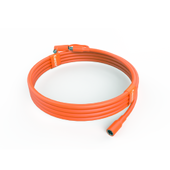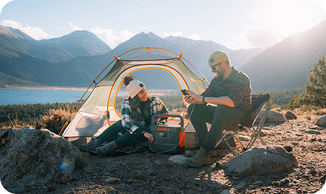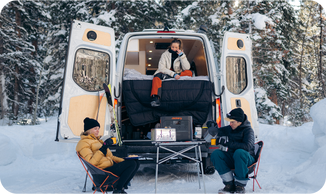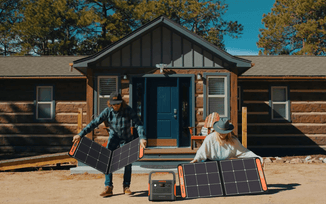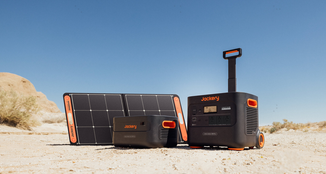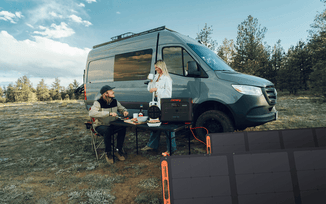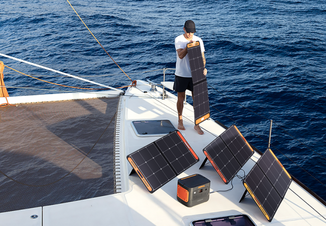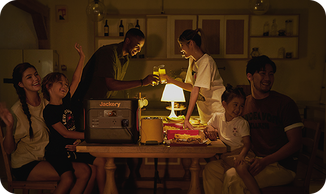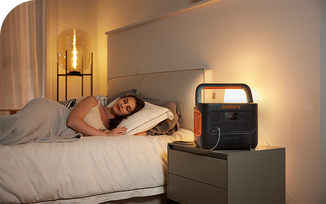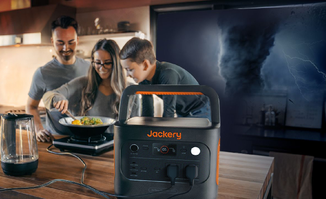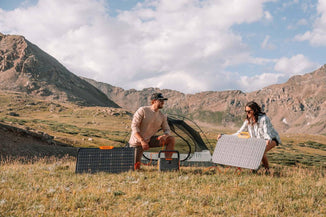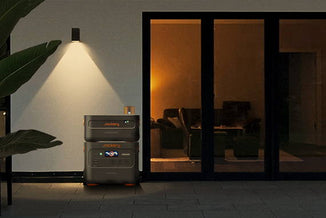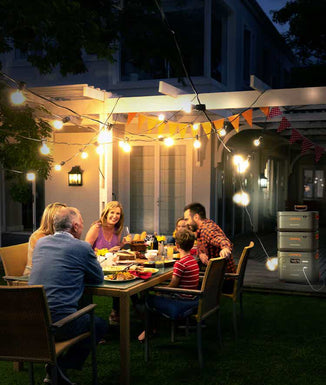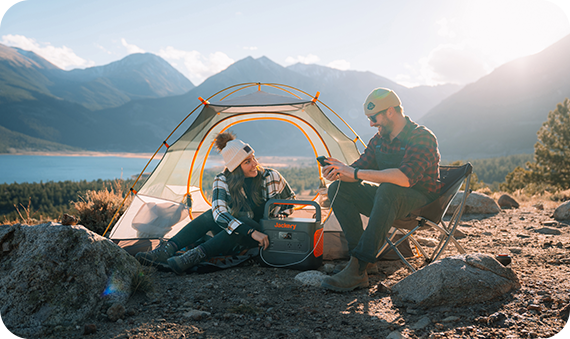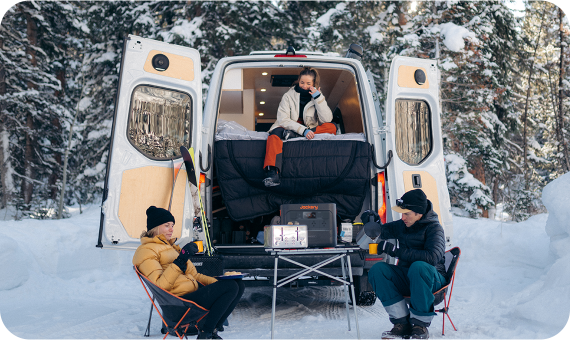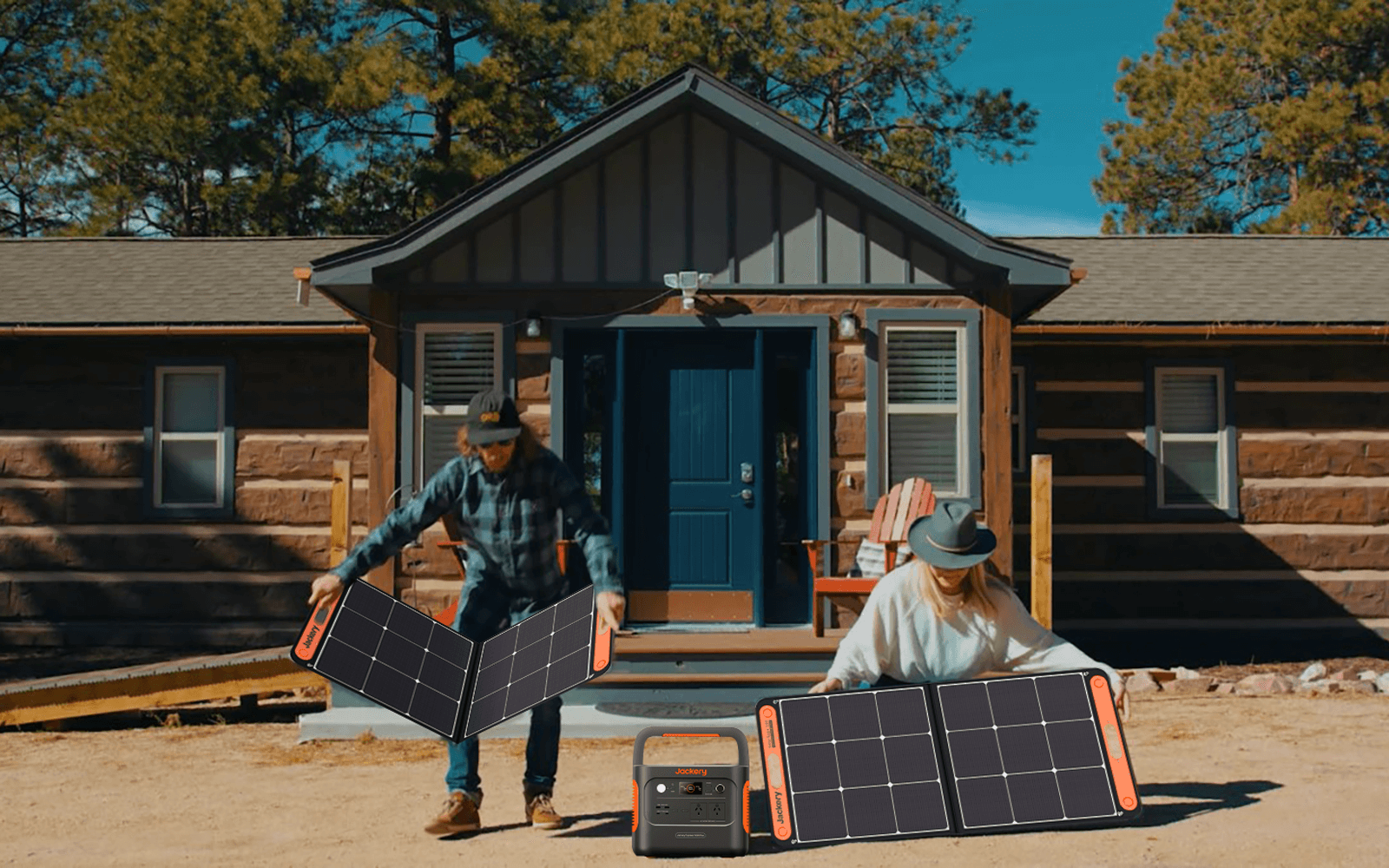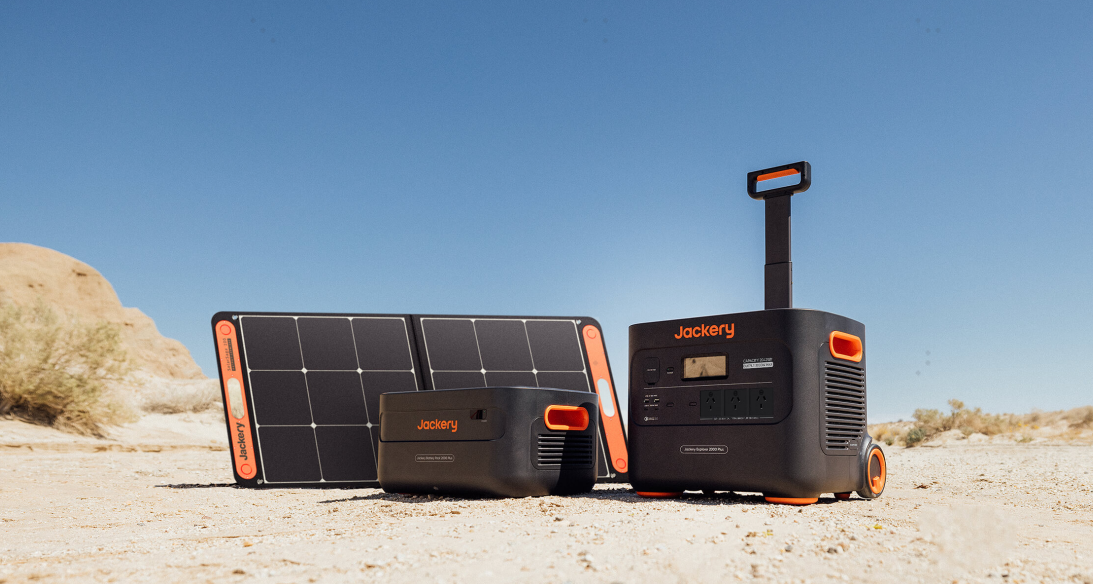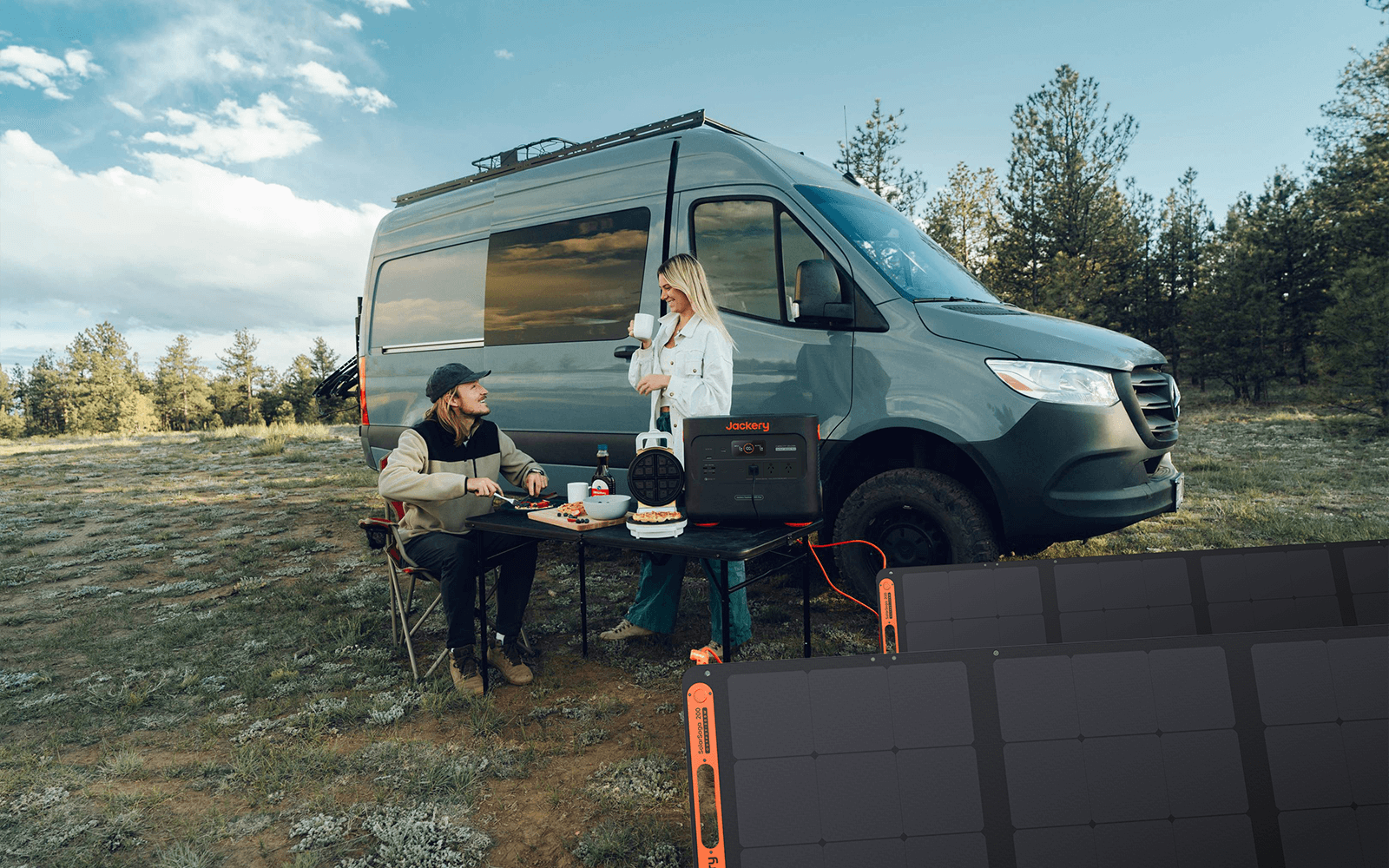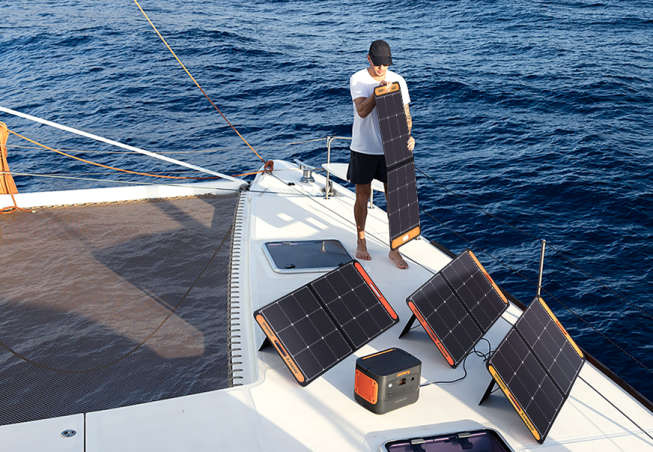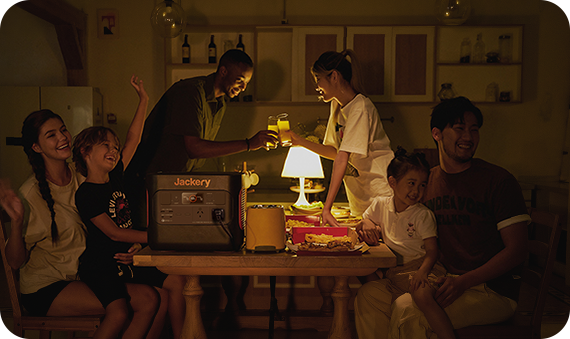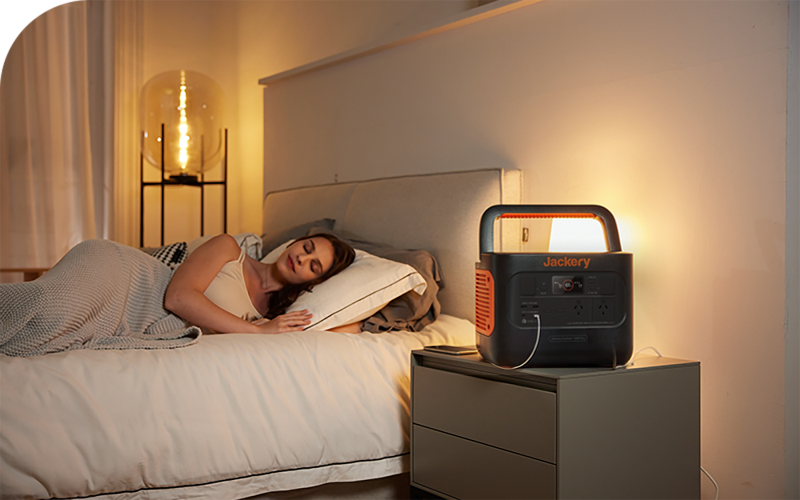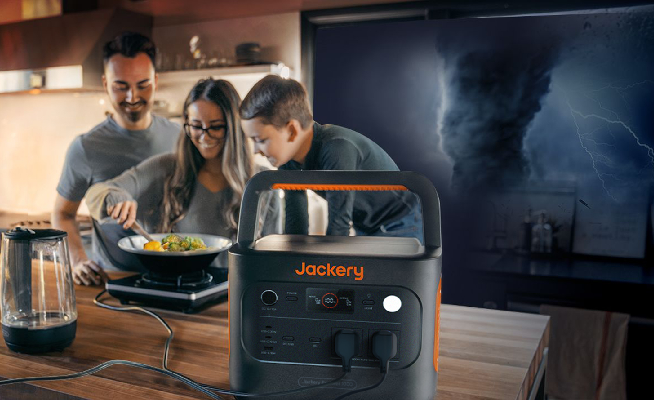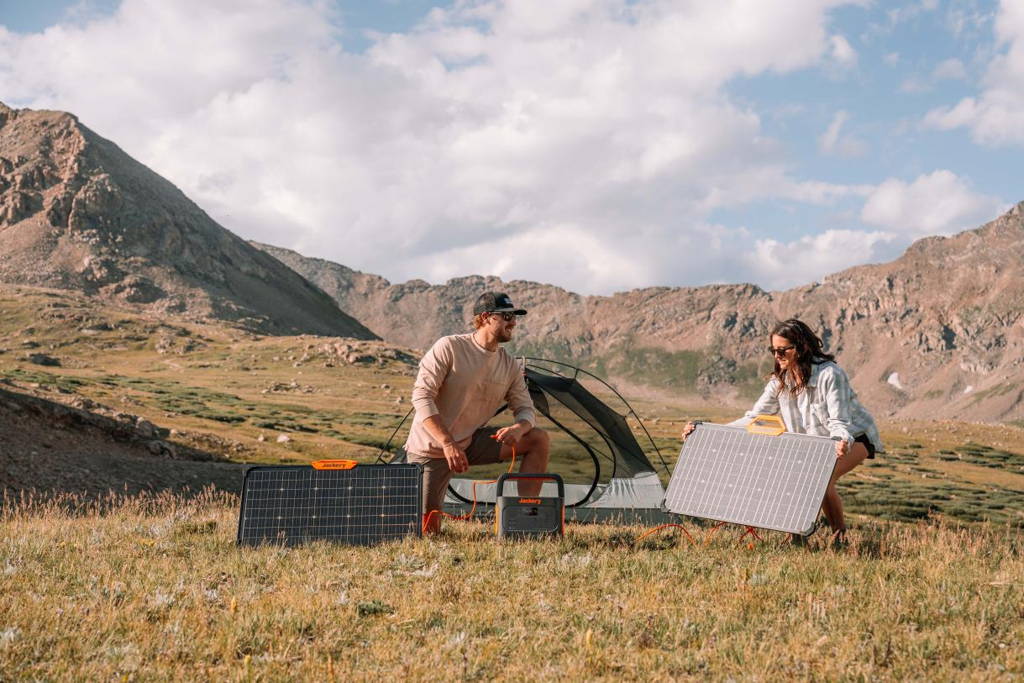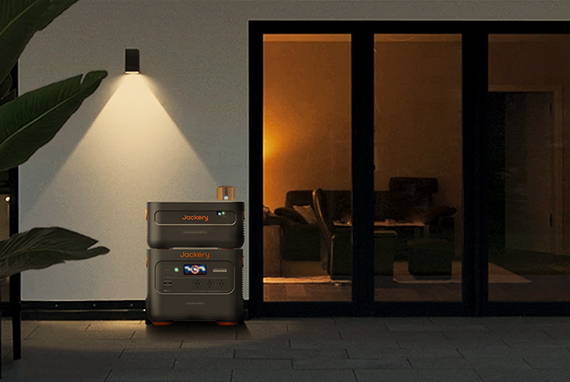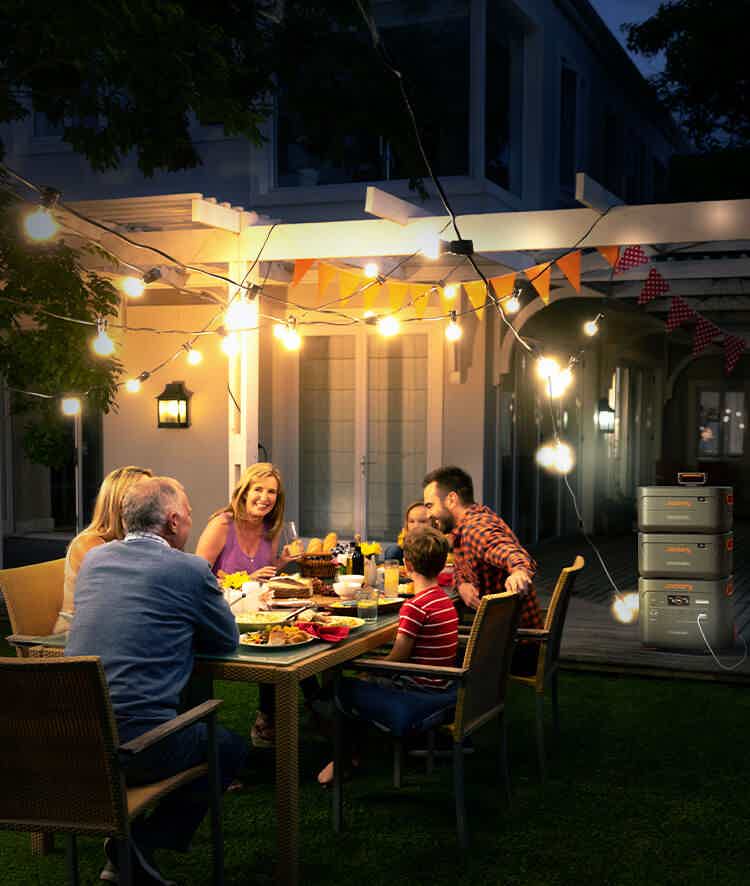CPAP Power Supply: Can Solar Generator Power CPAP
CPAP Power Supply: Can Solar Generator Power CPAP
The most popular form of therapy for sleep apnea is a machine that applies continuous positive airway pressure (CPAP). Virtually all CPAP machines use a power source plugged into an electrical outlet. Because of this, the majority of CPAP devices don't need batteries. Owning a battery or generator for a CPAP power supply is essential in some circumstances, such as living off the grid, camping, RVing, or experiencing a home power outage.

You don't have to forgo off-grid experiences just because you or a loved one utilizes a CPAP! Solar energy is undoubtedly a wise option for running your CPAP, particularly solar generators, which are more hygienic and quiet than batteries. Jackery solar generators are appropriate for your CPAP and come in various sizes. You will discover what CPAP is, CPAP power supply, and its types on this page.
What is CPAP
One of the most popular therapies for sleep apnea is the use of a CPAP (continuous positive airway pressure) machine. So that you can get the oxygen you need for optimum function while you sleep, it maintains your airways open. A CPAP machine can significantly enhance sleep quality and lower your risk of developing several diseases, such as heart disease and stroke.
Obstructive and central forms of sleep apnea are both treated with CPAP devices. Your breathing is obstructed while you slumber in both disorders. As a result of the absence of oxygen and increased risk for high blood pressure, heart disease, stroke, diabetes, and other health issues, this can happen hundreds of times in a single night. By continuously supplying air through your mouth and nostrils, a CPAP machine aids in maintaining the health of your airways.
How Does a CPAP Work
The original devices Dr. Sullivan's team created were based on the same principles as modern CPAP machines. Smaller, noisier motors are now used to produce the pressures. However, room air (not oxygen) is filtered and compressed at the levels your sleep doctor has advised.
The pressure delivered by sleep apnea devices can range from 4 centimeters of water pressure (CWP) to a maximum of 25 CWP. 2 This air is frequently supplied via tubing to the mask interface after being heated and humidified. A cushion is formed along the upper airway thanks to the continuous passage of pressurized air. Some compared it to an air-filled pneumatic splint that prevents the larynx from collapsing.
What is CPAP Power Supply
The CPAP power supply, also called the CPAP power solution, must continuously supply power to the CPAP to function correctly. Virtually all CPAP machines use a power source plugged into an electrical outlet. Take your therapy when you travel, though, and ensure you're rested and prepared to appreciate your adventure!
For CPAP machines, numerous power options are available, allowing you to treat your sleep disorder at home or abroad successfully. Bringing AC power cords, portable battery packs, DC power cords, and solar generators is ideal for sleeping under the stars or away from fixed power sources.
How Many Watts Does A CPAP Use AC
Depending on the brand and model of your CPAP machine and the comfort features you have turned on. You may need a different quantity of power. A CPAP machine typically consumes 30 to 60 watts without a heated humidifier at a usual pressure level of 7 to 12 cm H2O. The power consumption of CPAP machines can reach 70–100 watts when heated humidifiers are used in higher-pressure settings. Although most models only offer waterless humidification, travel CPAP machines are significantly more efficient and usually provide therapy for just 5 to 20 watts.
How Much Power Does A CPAP Need
If you need help determining how much power your device consumes, consult the owner's manual or contact the maker. By dividing the operating wattage by the voltage of your machine, you can also determine its amp draw.
A 24-volt CPAP, for instance, might have an average power demand of 53 watts and a maximum draw of 104 watts. A typical power draw of 2.2 amps equals 53 Watts divided by 24 Volts. The highest power draw for 103 Watts is 4.29 amps when divided by 24 Volts. Of course, you'll also need to know the power requirements of any additional appliances used concurrently. You're fine if you don't use more power than your system's 30 or 50-amp limit draw.
CPAP Power Supply
A mask, a hose, and a machine comprise the three major parts of a CPAP machine. The device's fan pulls air into it, which the engine then filters and purifies. You can adjust the machine's pressure level, which is expressed in millimeters of water pressure, with the assistance of your doctor. There are four types of CPAP power supply.
Types of CPAP Power Supply
A CPAP machine needs continuous, steady, and quiet energy to operate, which can come from electricity, batteries, or another kind of power source.
Inverter: An AC electricity at 120 volts is the most typical way to power your CPAP machine. You will require an inverter to power the wall outlet that your machine is connected to when using a 120-volt service. The inverter converts your 12-volt battery's power to 120 volts, and it needs enough wattage to supply the device with the proper quantity of electricity.
Direct Current: Using direct current is a different choice (DC). This approach involves wiring a 12-volt outlet in your house or RV to use a DC cable for electricity, though it is less complex. The outlet must be installed in line with the electrical requirements of your particular RV. They are similar to cigarette lighter receptacles and can be bought from Amazon or an auto parts shop, but you'll need to have the right size wire and fuse.
Battery Pack: The third and least popular option is to use a portable battery pack to power the CPAP machine. The battery pack must be designed especially for your machine. They are available for buy on Amazon and other retailers. The CPAP machine's battery pack or portable power source typically has enough power to run for two nights.
Solar Generator: Solar generators combine power stations with solar panels. Solar panels convert solar energy into electrical energy, then stored in power plants for subsequent use. The generator technique helps recharge your battery bank and has no adverse effects on your batteries. Additionally, compared to other battery or generator kinds, the solar generator is quieter, cleaner, and simpler to use.
Types
Cons
Inverter
- Common option in RV or camping
- Cheaper
- Requires plug-in 12V outlet
- Requires 12V battery
- Efficiency decrease
- Only the inverter can not power
Direct Current
- Less complex
- Easily connects to the grid
- Needs correct size wire and fuse
- Needs DC cable
- Hard to operate when off the grid
-Not Portable
Battery Pack
- Portable
- Easy to use
- Need to match your CPAP
- Only support short-time use
Solar Generator
- Renewable Power
- Lightweight, portable
- Quiet
- Power even at night
- Pass-through charging
- Multiple outlets or ports
- Combine solar panels with power stations
- No maintenance costs
- Off grid, power outage backup power
- A little pricey
CPAP Camping Power Supply
You have various choices to consider when it comes to supplying your CPAP machine with power while camping. And one of the choices is to reserve a campground with grid access. With a powered campsite, you'll need to plug in your CPAP machine to keep up with your sleep treatment.
Another option is to take a portable solar generator. While traveling, the Jackery Solar Generator 1000 Pro and Jackery Solar Generator 600 Plus are excellent choices. A continuous power supply for your CPAP device is guaranteed even on multi-night camping trips, thanks to the solar panels installed on both generators. These generators are ideal for use in various camping spots thanks to their lightweight, foldable design and clean, quiet operation.

Photo Credit: iStockPhoto
CPAP Backup Power Supply
It is still advised to have a secondary CPAP battery even if you don't enjoy hiking, camping, or living off the grid. Some CPAP batteries have a fallback function that activates during an unexpected power outage. Without requiring manual action, an uninterruptible power supply (UPS) can automatically detect a power outage and switch to battery power. In the event of a power outage, you may need to disconnect your machine from the wall outlet and convert it to battery power because some CPAP batteries do not work as a UPS backup.
On the other hand, a solar generator converts solar energy into electricity and stores it in a power station, so you never have to fear a power outage. Concerning the Jackery Solar Generator 1000 Pro, it can be fully charged in just 3.8 hours thanks to 4 units of ground-breaking SolarSaga 100W solar panels. You can experience limitless green power wherever you go with a quick and easy 60-second setup.

Photo Credit: iStockPhoto
CPAP RV Power Supply
Using a CPAP machine in an RV is very simple if you plan on a powered campsite. If your RV system doesn't have a built-in inverter to power your AC outlets, you might need a DC adapter for your machine, depending on your setup and the accessible outlets. Since a motorhome uses limited energy, you must be careful about which appliances you use while using your CPAP.
Additionally, you can use a portable solar generator to plug in your CPAP. Using a generator is one of the easiest ways to power your CPAP machine while spending the night outdoor or in an RV. This independent electrical supply offers a steady flow of electricity to run your CPAP machine all night. The Jackery Solar Generator 600 Plus is a relatively light and easy-to-carry generator. Before leaving for your camping excursion, you can charge it using the bundled solar panels, the power outlet in your vehicle, or even a wall outlet at home.

Photo Credit: iStockPhoto
How to Choose A CPAP Power Supply
The majority of CPAP machines available are AC-powered. Therefore, it might be challenging when there is no power or when you are traveling. You can use backup batteries, solar generators, or other generators as a CPAP power source to alleviate such a situation. The following factors should be taken into account when selecting a CPAP power supply:
Power Capacity: In addition to battery capacity, a CPAP battery's power output capability should also be carefully considered. Whether or not your battery can run your CPAP depends on its power capacity. For instance, if your cell has a power capacity of 50W but your CPAP demands 55W, the battery will not be able to power it.
Battery Capacity: How long the battery can fuel your CPAP device depends on the battery's capacity. Assume your battery has 632Wh (Jackery Solar Generator 600 Plus has a battery of 632 Wh) and your CPAP device needs 50W of electricity. In this scenario, your battery can constantly power your CPAP for 10-11 hours.
Portability: The battery's mobility is the third and final factor to consider. Traveling already involves a lot of lifting; adding more baggage could only worsen the situation.
Quiet: At near noiseless operation, the working volume of Jackery Solar Generator 1000 Pro is as low as 30dB - more modest than a library (40dB). And the Solar Generator 600 Plus produces less than 37.9dB: a quiet generator for camping or RV is one of your best outdoor living investments.
Safe: The solar generator does not emit any polluting fumes, whilst producing renewable energy. Safe solar energy for both outdoors and indoors.
Can A Solar Generator Power A CPAP
The answer is yes! A solar generator is ideal for CPAP power supply, especially when you are camping, living off the grid, home power outage. You will never go wrong with Jackery if you seek the best solar generator for a CPAP. It combines the portable power station with SolarSaga solar panels, which absorb solar energy and turn it into electricity.
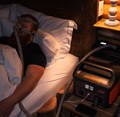
A quiet solar generator or portable power source works best for a CPAP machine. This is why it is wise to choose solar generators over conventional generators. Jackery provides a range of solar power generators, depending on the number of appliances you need to run and your power requirements. Since a CPAP only requires 30 to 60 watts of electricity, the Jackery Solar Generator 1000 Pro or Solar Generator 600 Plus are highly recommended because they are portable, quiet, and affordable.
Jackery Solar Generator 1000 Pro only needs 1.8 hours for a full charge, made possible by 4pcs of SolarSaga 100W solar panels, and 3.8 hours to full . Pure sine wave inverter delivers stable power to safeguard your equipment. This super quiet (46dB) product has an integrated battery system (BMS) to monitor & protect battery life. Solar Generator 600 Plus is one of the lightest and most portable rechargeable lithium battery generators on the market. Its dual PD fast charging can go up to 100W, so your devices will be charged quickly.
Series
Recharging Time
Ports
CPAP Charging
Jackery Solar Generator 1000 Pro
Explorer 1000 Pro + SolarSaga 80W x 2: 9H
AC Adapter: 1.8H
2*100W PD Ports, 3*1000W AC Ports, 2*USB-A Ports, 2*USB-C Ports, 1*DC Carport
CPAP(10W)
80Times
Jackery Solar Generator 600 Plus
Explorer 600 Plus + SolarSaga 100W: 8.5H
AC Adapter: 1.6H
2*AC Output; 1*USB-A Outpu;
2*USB-C Output;
1*AC Input;
1*DC Carport
CPAP(AC Outlet)
9H
CPAP Power Supply FAQs
The following shows the frequently asked questions about the CPAP power supply:
1. Is it worth using a solar generator for CPAP power supply?
A CPAP system can indeed be powered by solar energy. For apparent reasons, a solar generator won't produce any noise like a traditional fuel-powered generator would. A solar generator has no moving parts, so the only noise you might notice is coming from the inverter. Once you are in an area with an ideal quantity of sunlight, you have an endless energy supply.
2. What Size Solar Generator Do I Need to Run An AC?
Watt-hours are a method to estimate how much time you'll spend using your device each day. It also determines how much energy you'll use. The number of hours your CPAP will run should be multiplied by the roughly 50 watts it consumes. For illustration, 50 times 8 equals 400 watt-hours. In general, purchasing a solar generator that can meet your requirements, like Jackery, is advised.
3. What to consider when buying a CPAP power supply?
There are many things to think about when purchasing a CPAP power supply. In addition to power capability, battery capacity, and portability, other factors include machine compatibility, run time, charge time, cost, warranty, and warranty. The battery you select must, above all, work with your CPAP equipment.
Final Thoughts
It's crucial to make the correct purchase choice when purchasing a CPAP power supply. Because CPAP power supplies are expensive, you should spend your money on one that will last and is suitable for your particular CPAP machine. Solar generators are known for their clean energy, portability, low upkeep, and quiet charging. Your best option for a CPAP power supply to allow a cozy night might be Jackery!
Best-selling Jackery Solar Generator
PAGE CONTENTS
New Arrival
Hurry up! Sale ends once the timer hits zero

